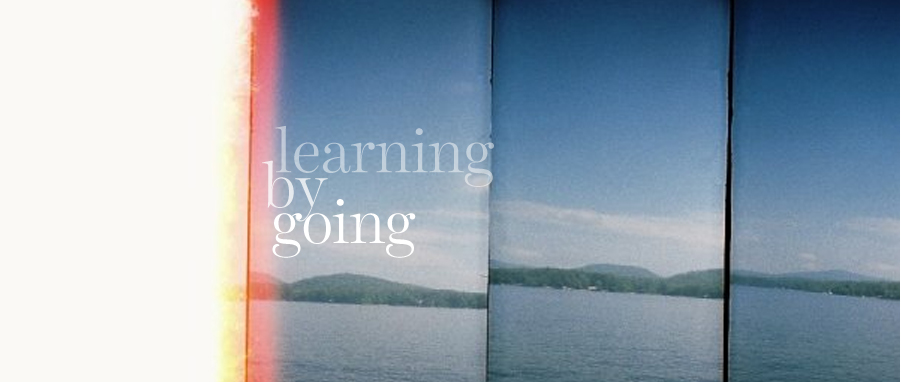When I began my first semester of college, I really didn’t know what I was doing. I didn’t know what I wanted to study, and I remember when it came time to register for classes I felt pretty lost. I knew I would be taking Latin; Bryn Mawr had a pretty weighty language requirement and I had taken four years of Latin in high school. I had to take a required freshman writing seminar that all new students took, but that left two class slots wide open. My high school education had been very traditional and middle of the road. I went to college not even knowing what anthropology was, for example. I took some great classes in high school, including AP offerings in both Latin and Economics, but overall, I would say that the program offered at my high school, while solid, was not dynamic.
I had gone to a state-run educational camp for two summers while in high school (three weeks at a local college, all expenses paid for everyone, a pretty amazing thing looking back) and one year I had done creative writing. So, that first semester, I enrolled in Introduction to Writing Poetry. I didn’t think I’d make it into the course as Creative Writing offerings were notorious for being popular and oversubscribed, with priority going to juniors and seniors. When I received my schedule, though, there it was.
I figured this would be pretty straightforward. I had written some poetry at camp, and it had been well enough received. While in high school, I hadn’t really read any poetry at all, saving old standards like William Cullen Bryant’s “Thanatopsis,” which I remember enduring in AP English. Nonetheless, I figured I would be set.
I realized immediately that I was thoroughly mistaken. The other fourteen young women in the class were not there because they couldn’t think of anything else to register for. They were there because they loved poetry. They had written oodles of poems and read even more. Before class even started, they were swapping favorite poets, most of whom I didn’t know at all. It was frightening and intimidating. I am not entirely sure why I stayed in the course, but I think my main reason for staying was that it had been such a surprise to be enrolled, I didn’t want to give up this stroke of “luck.”
I struggled. I did all of the assignments and I did them carefully. I began to pick up the lingo and learn how to function in a workshop environment, and I do think I offered my classmates the occasional trenchant critique. That said, I did not write good poems. I couldn’t think of things to write about, let alone “wordsmith” as we were encouraged to do. The poem of mine that was best received in workshop was built thematically around a life experience that I had never even had, making me feel as though I was thumbing my nose at the confessional poets I had come to love like Sexton and Lowell. I felt like a minor leaguer, a lost child, a flop. I ended up with a slightly above average grade, but there was no sense that I had done any work that semester to really remember.
In that class, though, I met some absolutely amazing women whose talent was evident and crackled around them like radio static. They ranged in age (Bryn Mawr has a program for students of “non-traditional” age), race, socioeconomic class, geographic background, and sexual orientation. In some ways, that class was a little microcosm of the community as a whole. The professor was kindly and warm, but not at all mincing. She didn’t patronize, but she wasn’t cruel.
I should have left that class demoralized. I didn’t distinguish myself at all, and it was one of many experiences at Bryn Mawr that left me feeling as though I didn’t measure up. So, what did I do? I enrolled in the follow-up course Advanced Poetry Writing the next semester. I was never going to be much of a poet, but I was not going to let the opportunity of spending more time in that challenging, electric environment pass me by. True, I didn’t break any new poetic ground in the next course. I didn’t earn a fantastic grade. I sometimes felt silly and I sometimes felt stupid. Even in those moments, though, I felt supported and I felt inspired.
That sort of environment is rare and, I believe, a force of nature. It can’t really be created. A good teacher can facilitate the possibility of such camaraderie, but it takes many things coming together in a specific way for what I felt to happen (and, to be fair, I can’t say if everyone in the room felt the same way, although I suspect many did). The power of people (and in this case, women) creating art together (even if some of it is amateurish) should never be underestimated.

